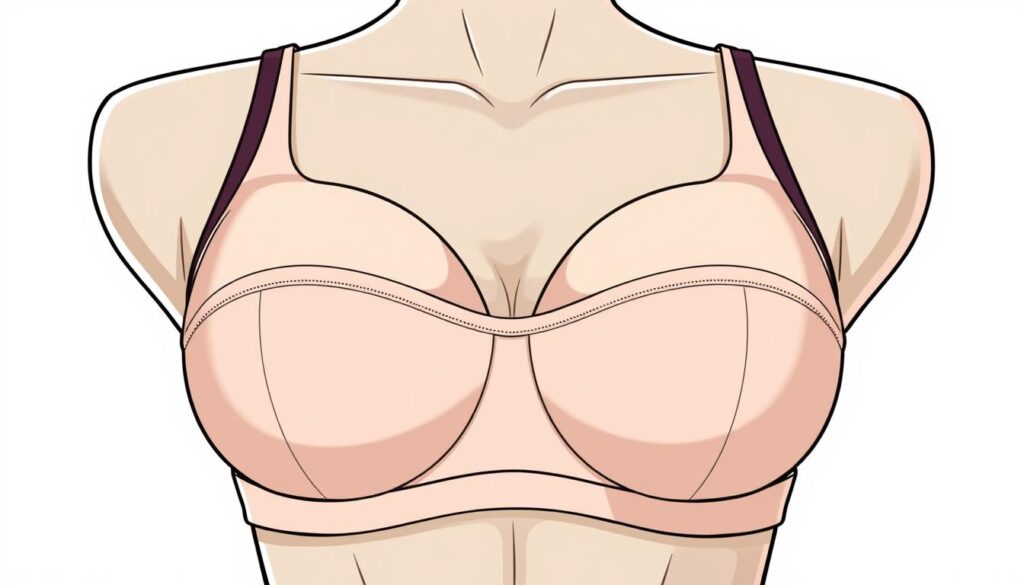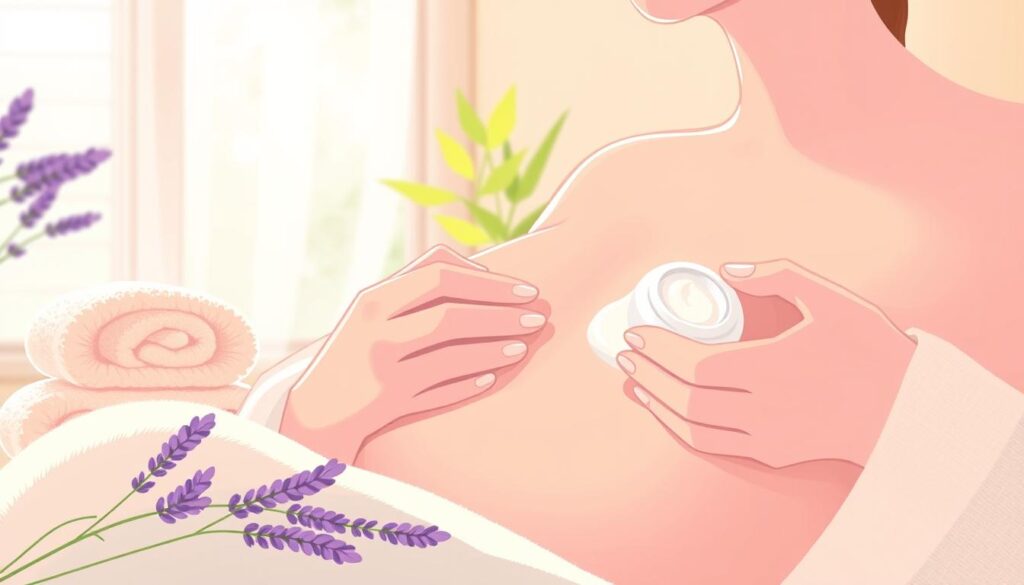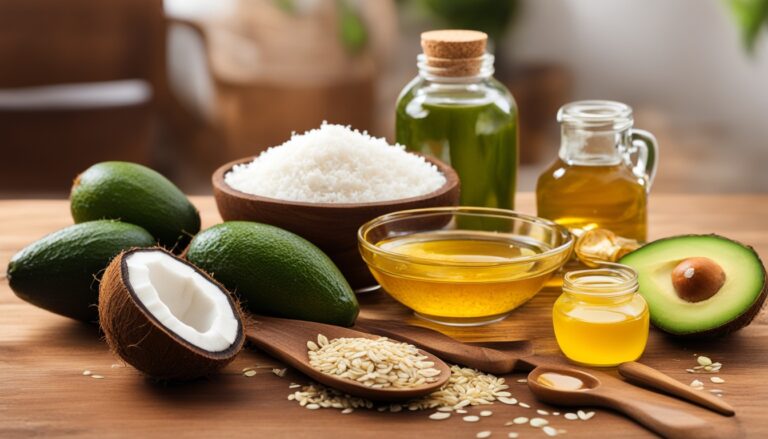Itchy nipples during pregnancy are common and uncomfortable. Dr. Good Deed, a top obstetrician, offers tips and advice. He explains the causes, treatments, and when to see a doctor.
He talks about hormonal changes, skin conditions, and the need for proper breast support. Dr. Good Deed also shares ways to prevent and manage nipple irritation during and after pregnancy.
Understanding Itchy Nipples During Pregnancy
Hormonal Changes and Breast Growth
During pregnancy, your body changes a lot. Hormones like estrogen and progesterone make your breasts grow. This can make your nipples itch.
More blood in your breasts can also cause irritation. Knowing these changes helps you deal with itchy nipples better.
- About 20 percent of pregnant women experience mild or moderate itching at some point during their pregnancy.
- 2 in 10 pregnant women will experience itchiness on their abdomen or elsewhere on their body due to their growing belly bump.
- Vaginal itching during pregnancy can be more likely to occur as the pregnancy progresses, and yeast infections are common.
Understanding why your nipples itch helps you find ways to feel better. This makes your pregnancy more comfortable.
Causes of Itchy Nipples During Pregnancy
During pregnancy, many changes happen in your body. But, itchy nipples can also be caused by other things. Skin conditions like eczema, psoriasis, and contact dermatitis can make your nipples itch. Also, some fabrics, laundry detergents, and skincare products can irritate your skin.
Skin Conditions and Irritants
Pregnancy can make skin conditions worse. Eczema, for example, can get worse because of hormonal changes. It affects up to 50% of women who already have it.
Pregnancy can also make psoriasis, a condition with scaly, itchy patches, worse. Contact dermatitis, an allergic reaction, can also cause nipple irritation.
Things like certain fabrics, laundry detergents, and skincare products can also make nipples itch. Finding and avoiding these irritants can help.
Understanding why your nipples itch during pregnancy can help you find relief. It’s important to address the cause to manage this common discomfort.
Itchy Nipples During Pregnancy? Dr. Good Deed’s Tips for Treatment
Itchy nipples are common during pregnancy. The National Institutes of Health say up to 88% of pregnant women get skin striae or stretch marks. This can make nipples itch. Dr. Good Deed has tips to help.
Moisturizing is very important. Use creams like lanolin or coconut oil to keep skin soft. Drinking 6-8 ounces of water a day also helps keep skin moist.
Wear soft, cotton bras or camisoles to avoid irritation. Stay away from fabrics that irritate and use fragrance-free products. This helps prevent more itchiness.
If home remedies don’t work, see a healthcare provider. They can check for skin problems like PUPPP or AEP. They can give more advice and treatment.
By following Dr. Good Deed’s advice, pregnant people can ease their itchy nipples. This lets them enjoy the pregnancy more.
The Role of Proper Breast Support
Proper breast support is key to managing itchy nipples during pregnancy. A well-fitted, supportive bra reduces friction and irritation. Choose soft, breathable fabrics like cotton for all-day comfort.
For those who exercise, a high-quality sports bra is vital. It prevents irritation from breast movement. With increased blood volume and rapid growth, a supportive bra keeps you comfortable.
Here are some tips for finding the right bra fit during pregnancy:
- Get professionally fitted for a bra at least once during each trimester, as your size can change significantly.
- Opt for bras with wide, padded straps and a firm, supportive band to provide the necessary breast support.
- Choose bra fits that accommodate your changing shape and allow room for growth without being too tight.
- Invest in several comfortable and well-fitting bras to rotate throughout the day and during physical activity.

By prioritizing proper breast support, you can ease itchy nipple discomfort. Enjoy a more comfortable pregnancy experience.
When to Seek Medical Attention
Itchy nipples during pregnancy are common but sometimes need medical help. If you have a rash, unusual discharge, or the itch doesn’t go away, see a doctor. They can help figure out what’s causing it and treat it.
Your doctor can check if it’s a skin problem or infection. They can give you the right treatment. This can help stop the itch and keep you safe.
Itching on your palms or feet might mean something serious. This could be cholestasis of pregnancy. It’s rare but serious, especially for Latina women. If you itch there, see a doctor fast.
If your nipples itch and you have a rash or discharge, call your doctor. They will check you out, find the cause, and treat it. This can help get rid of the rash and discharge and keep you safe from infections.
Coping with Breast Changes During Pregnancy
Pregnancy brings many changes, including big ones to your breasts. You might feel itchy nipples or see them grow fast. But with the right care and support, you can enjoy this amazing time.
It’s normal to feel itchy or sensitive nipples as your body changes. Drinking water and wearing comfy, supportive bras can help. Remember, these changes are a natural part of being pregnant. Be patient and kind to yourself.
- Approximately 16 weeks into pregnancy, breasts are capable of producing milk.
- Small amounts of colostrum often begin to leak from nipples during pregnancy.
- Breast lumps, such as cysts, galactoceles, and fibroadenomas, are common benign conditions during pregnancy.
Talk to your loved ones or healthcare providers about your feelings. Sharing your thoughts can help you deal with the physical and emotional changes. Focusing on the joy of this time can improve your well-being.

Your body is amazing at adapting to support your baby. By taking care of yourself, staying positive, and getting the support you need, you can handle these changes well. Enjoy the incredible journey of pregnancy.
Preventing Itchy Nipples During Pregnancy
Pregnancy can cause many skin changes, like itchy nipples. But, there are ways to stop or lessen this problem. Use fragrance-free moisturizers in a gentle skincare routine. This keeps your nipple skin soft and moist.
Wear loose, breathable clothes and bras that fit well. This helps avoid friction and irritation.
Drinking lots of water is key to staying hydrated. Dehydration makes skin dry and sensitive. Also, avoid harsh soaps or detergents to prevent irritation. Gentle, low-impact exercise is good for your breasts without making nipples itchier.
Lifestyle Adjustments and Precautions
- Use fragrance-free, hypoallergenic moisturizers to keep skin hydrated
- Wear loose, breathable clothing and well-fitted, supportive bras
- Drink plenty of water to stay hydrated
- Avoid harsh soaps, detergents, and other potential irritants
- Engage in gentle, low-impact exercise to support breast health
By making these simple changes, you can prevent or manage itchy nipples during pregnancy. Always listen to your body. If the itchiness gets worse, talk to your healthcare provider.
Nipple Care After Childbirth
As you start the postpartum period and maybe begin breastfeeding, it’s key to keep up with skin care. Make sure to gently wash and moisturize the nipple area. Also, check that your breastfeeding is done right to avoid irritation and keep your skin healthy.
Be extra careful with your nipples after having a baby. Clean them with a mild, fragrance-free soap and lukewarm water. Then, use a moisturizing cream to keep the skin soft and healthy. Don’t scrub too hard or use products that might irritate the sensitive skin.
- Make sure the baby is latched right to avoid nipple pain and damage.
- Use a lanolin-based ointment or other nipple cream to ease any discomfort.
- Drink plenty of water and eat well to help your skin health and milk production.
If you have ongoing nipple irritation, cracking, or other issues, get help from your healthcare provider or a lactation consultant. They can find and fix any problems, making your postpartum and breastfeeding journey smoother.

Itchy Nipples and Breastfeeding Support
Itchy nipples can be a big problem while breastfeeding. They might get worse as your body gets used to making milk. Yeast infections like thrush can make nipples very sore and need quick treatment.
Getting help from lactation consultants, nurses, or your doctor is very important. They can help find and fix any breastfeeding problems that cause itchy nipples. They offer advice, resources, and solutions to make breastfeeding better for you.
You’re not alone in dealing with itchy nipples. By finding the cause and getting the right help, you can beat this problem. This way, you can enjoy breastfeeding and feed your baby.
Identifying and Treating Breastfeeding-Related Nipple Issues
- Consult with a lactation consultant to ensure proper latch and positioning during breastfeeding, which can help prevent nipple irritation.
- Explore the possibility of a yeast infection (thrush) and seek appropriate treatment from your healthcare provider.
- Utilize soothing nipple creams or ointments, as recommended by your lactation consultant or healthcare provider.
- Practice good breast hygiene, including gentle cleansing and air-drying after feedings.
- Stay hydrated and maintain a healthy, balanced diet to support your body’s healing and lactation process.
Working with your support team and fixing any problems can help you feel better. Remember, your comfort and your baby’s health are most important.
Embracing Pregnancy’s Transformations
As you go through pregnancy’s changes, be kind to yourself. Celebrate how your body is changing. Accept the discomforts, like itchy nipples, and enjoy the miracle of pregnancy.
Accepting and Celebrating Your Body’s Changes
Your body is changing in amazing ways to support the growing life. Your breasts may grow by 2 to 3 pounds by the ninth month. The skin expands, which might lead to stretch marks. These changes show your body’s strength and resilience.
Love the way your body is changing and the role it plays in bringing a new life. Celebrate every change, even when they’re hard. Focus on the beauty of pregnancy by being positive about your body.
Not everyone will see big changes in their breasts during pregnancy. Some might not notice much, while others may feel a lot of pain, especially early on. Respect your body’s unique path and find joy in the journey.
Conclusion
Itchy nipples during pregnancy can be frustrating. But, with the right knowledge, you can find relief. Understanding the causes and treatments helps you stay comfortable.
Keeping a healthy lifestyle and taking care of yourself is key. It helps manage itchy nipples and other skin issues. With the right help, you can enjoy this special time.
Stay informed and ask for medical advice when needed. Reach out to healthcare professionals, friends, and online communities for support. By focusing on your well-being, you can have a better pregnancy experience.
FAQ
What are some common causes of itchy nipples during pregnancy?
Hormonal changes and skin issues like eczema or psoriasis can cause itchy nipples. Also, things like certain fabrics, laundry detergents, or skincare products can irritate the skin.
How can I find relief for itchy nipples during pregnancy?
Dr. Good Deed suggests using emollient creams and wearing soft, cotton bras. Avoiding irritating fabrics and products is also key. If home remedies don’t work, see a healthcare provider.
Why is proper breast support important for managing itchy nipples?
A well-fitted bra reduces friction and irritation on sensitive nipple skin. Choose breathable fabrics and a good sports bra for exercise to avoid more discomfort.
When should I seek medical attention for itchy nipples during pregnancy?
See a healthcare provider if you have a rash, unusual discharge, or if the itchiness doesn’t go away. This could mean a skin condition or infection that needs treatment.
How can I prevent or minimize itchy nipples during pregnancy?
Use a gentle skincare routine and wear loose, breathable clothes. Stay hydrated and avoid irritants. Low-impact exercise also supports breast health without causing more discomfort.
How do I care for my nipples during the postpartum and breastfeeding period?
Clean and moisturize the nipple area gently. Make sure to breastfeed correctly. Seek help from lactation consultants or healthcare providers to prevent and treat irritation.
How can I cope with the emotional aspects of the physical changes during pregnancy?
Be kind to yourself and celebrate your body’s changes. Seek support from loved ones or healthcare providers. This helps you face pregnancy’s physical and emotional challenges with strength and positivity.











Leave a Comment